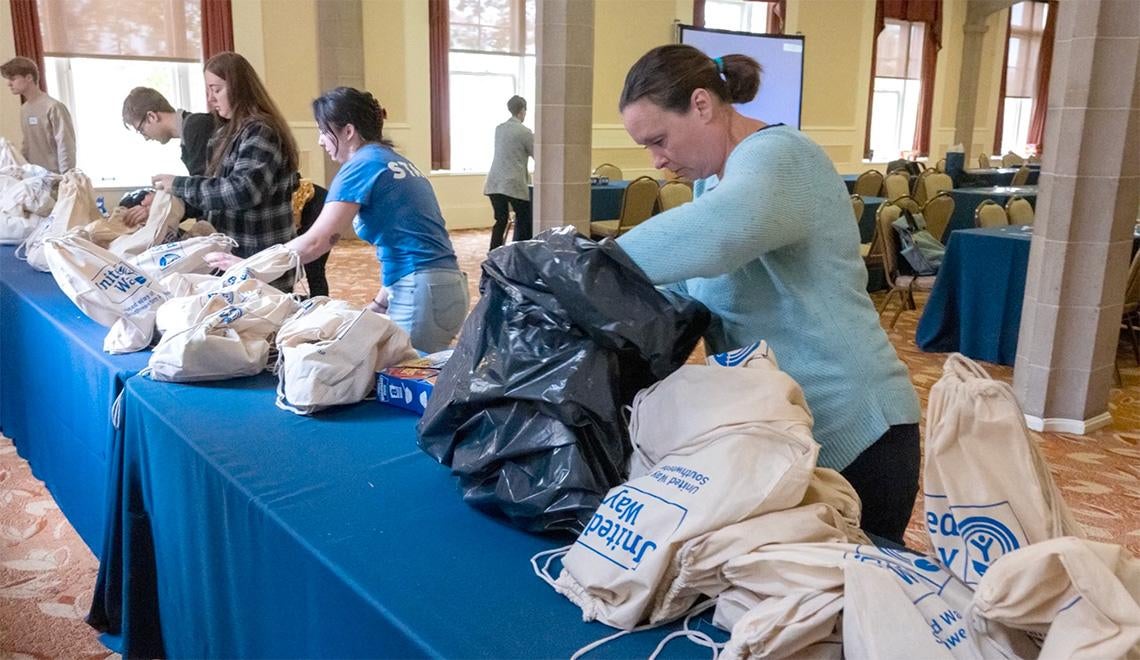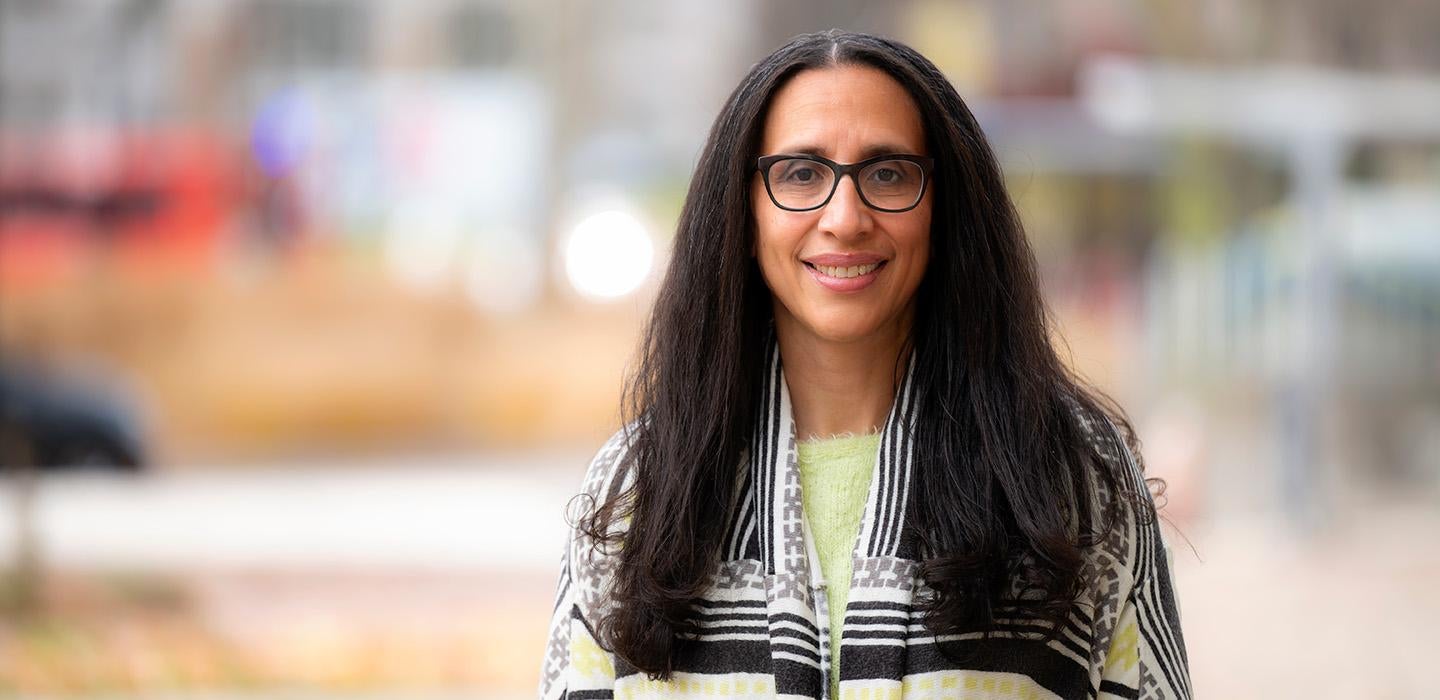
Subscribe to Pittwire Today
Get the most interesting and important stories from the University of Pittsburgh.As a two-time breast cancer survivor, Kelly Gilliam understands the difference that community support and resources can make. That’s why becoming the University of Pittsburgh’s first-ever United Way Campaign manager in 2018 was an ideal fit.
“I worked in Human Resources, and when I told my colleagues I was leaving to be the Pitt United Way Campaign manager, they said it was like the position was made for me,” said Gilliam.
Pitt is one of hundreds of organizations that partner with United Way, a 135-year-old nonprofit with a mission to globally advance the common good by building strong and equitable communities and focusing on the areas of health, education and economic mobility. The organization has reported improving the lives of more than 48 million people annually. A significant part of its reach is through workplace campaigns that target faculty, staff and retirees.
Gilliam’s responsibilities include creating and overseeing Pitt’s annual workplace giving campaigns and programming, which run from October to April, along with establishing goals and identifying volunteers. The Division of Philanthropic and Alumni Engagement established the role five years ago, after leadership decided the growing campaign merited a full-time employee.
“Pitt is very unique,” said Gilliam. “We are the only organization to have somebody dedicated full-time to work on the United Way Campaign across the various businesses and approximately 10 institutions of higher learning in Southwestern Pennsylvania that have their workplace campaigns.”
A life of service
A Pittsburgh native, Gilliam came up on the West End before relocating to the South Hills in middle school — going from the inner city surrounded mostly by Black kids to a district where she graduated as one of only five.
“Being in both inner city and suburban neighborhoods, I can say, no matter where you live or your family situation, you will always find people who struggle,” she said. “But your situation doesn’t define who you’ll become.”
She credits the grandmother who raised her for instilling in her a desire to help others and spread positivity. Other family members introduced her to different aspects of community engagement and supported her participation in camps through the Salvation Army and mobile libraries, both of which showed her the impact that exposure and access to resources can have.
“I had guidance [and] structure and learned so much from older people around me — namely how important it is to keep your word and [to do your very best at all things].”

Gilliam was diagnosed with cancer both in 2009 and 2016, requiring a rigorous ten-year timeline of medication, but her challenges only further spurred her passion for serving others.
“When I was diagnosed, I called on different organizations to help,” she said. “They got me through a very tough time, with some even supporting me financially, so if I can make a difference or encourage somebody, then it’s worth it.”
Outside of Pitt, Gilliam pastors the Shiloh Church in South Park with her husband and is the acting executive director of Life Builders, a nonprofit formed in 2021 that supports families and hosts a twice-monthly food bank. She also helped launch Melting Pot Ministries, a collaboration among five Pittsburgh churches that sponsor a summer camp for kids centered on enrichment activities in academics, music, art, physical fitness and spiritual education.
An opportunity to give
Since signing on to Pitt, Gilliam has helped the University’s United Way campaign reach new heights.
“Last year we raised over $701,000 across all five campuses, which is something to be proud of,” she said, adding that last year also saw retirees raise $80,000 — a Pitt record.
Money isn’t the only way to give. Staff and faculty can donate an annual total of 40 vacation hours (which are converted into dollars), sign up for payroll deductions and volunteer for up to 7.5 hours each month. Donations go to the United Way’s donation fund or to an organization of the participant’s choosing.
Students can also participate.
“We do not ask students to give monetary donations but to participate in volunteer opportunities and engage in on campus events,” said Gilliam. One such event is kit-packing, where volunteers pack weekend meals for food-insecure kids.
The organization also offers educational tools like simulations about the Poverty Spiral and Racial Wealth Gap which, respectively, aim to increase understanding of how local families may struggle to meet basic needs and underlying factors that lead to inequity. Since June, Gilliam said 15 companies have used these tools.
“The poverty spiral takes real-life stories of people who call into the 2-1-1 helpline,” Gilliam said. “Through the Pitt United Way Campaign, we have an opportunity to bring awareness to and meet the needs of residents and empower them to achieve long-lasting success.”
In both her United Way role and personal volunteer work, Gilliam said she aims to make a difference. For those with a similar passion, she extended an invitation:
“The Pitt United Way Campaign is an opportunity to give,” she said. “I invite you to join me in giving, not just of money but of your time, and to consider making an impact. It helps our campus, [our] neighbors, our city and our region.”
— Kara Henderson, photography by Aimee Obidzinski


